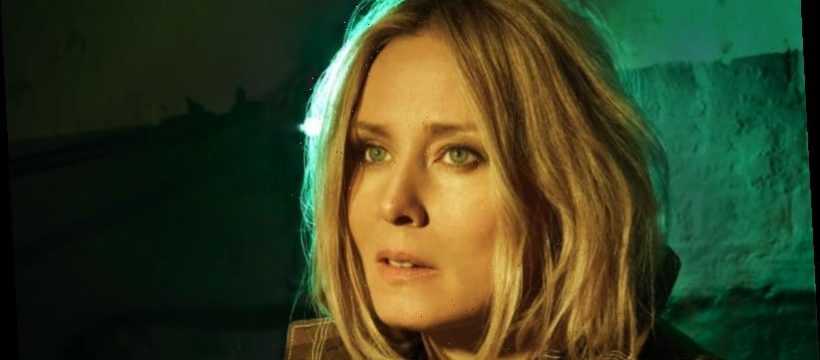Roisin Murphy is an original. From her early days in electronic duo Moloko to an ever-changing solo career, the 46-year-old Irish singer has been something of an oddball diva: her golden voice calling out across dancefloors, her live shows boasting wit, ridiculous, high-theatre and costume changes.
Performing, Murphy says, is a joy. Most of the time. “I do get stressed, especially if I can’t get my dress off and the other dress on,” she says with a laugh. Preparing to tour Australia for the first time in more than 11 years, she’s bringing a live show that she calls “not safe in any way”.
Former Moloko singer Roisin Murphy, touring Australia next month.Credit:
As a child in Arklow, Ireland, Murphy dreamt of being an artist. After falling into music when she met Moloko partner Mark Brydon at 20, she maintained her artistic self-conception.
“I came into [music] with an experimental mindset,” she says. “Playing with elements, reacting against things, obliterating boundaries.
"I came into it on a conceptual level. That sounds really pretentious, when all I was really doing was going ‘Do you like my tight sweater? See how it fits my body’.”
In those early days, Murphy offers, “there was a bit of dissonance going on with being an experimental, electronic artist, and then also being an Irish girl. At that time, that was quite far out.
"I should’ve been singing folk songs or been in the Hothouse Flowers or something. That was the identity of Irish music at that time… And dressing up, being flamboyant, and a very expressive performer, that wasn’t what the ’90s were about.”
When I finish a song, I feel great … that sense of self, that bit of pride I have in my work.
Moloko mutated much over their four albums and decade together, and Murphy’s solo career has followed suit. “I don’t put expectations on it because I can’t,” she says. “I have to be fluid.”
Sometimes, this means releasing a pair of albums – 2015’s Hairless Toys and 2016’s Take Her Up To Monto – back to back. Othertimes, it means releasing an album’s worth of material on a run of separate 12-inch singles, as she did across 2018.
Working with producer Maurice Fulton, who’d take their freshly finished tracks straight into his weekend DJ sets, Murphy realised that this run of songs had their own identity.
“I realised that what I was doing wasn’t making a statement about albums, it was much more about club culture,” Murphy says. “Some of it, most of it, is hard for DJs to play in their sets; it’s not very high-energy, EDM-friendly. But, it’s still about that, it was still borne out of that, it was still tested there.”
Releasing these singles also reflected the contemporary consumption of music. “The rules can go out the window now,” Murphy offers.
“Everything’s become so atomised. People only listen to one song at a time, and each song has to have its own world, visually, so you’ve got all sorts of content that you’ve got to create for each thing if you hope to reach anyone. I find that exciting.”
These days, Murphy directs all of her own music videos. She’s having fun with it, but is unsure of how much it means. “I don’t know if it is important to be visual with everything, to dress up and all that. It’s bloody frivolous, actually.”
And she's sure, even though “there’s no money” in selling records these days, music will remain at the centre of her existence. “It’s very good for my ego and self-esteem to make music,” she admits. “When I finish a song, I feel great. That’s part of what keeps me standing up: that sense of self, that bit of pride I have in my work.”
Roisin Murphy plays at Meredith Music Festival on Friday, December 13; the Forum in Melbourne on Sunday, December 15; and Enmore Theatre in Sydney on Tuesday, December 17.
Source: Read Full Article

